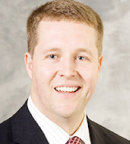
Giving an effective scientific presentation, like all public speaking, is an acquired skill that takes practice to perfect. When delivered successfully, an oral presentation can be an invaluable opportunity to showcase your latest research results among your colleagues and peers. It can also promote attendee engagement and help audience members retain the information being presented, enhancing the educational benefit of your talk, according to Sam J. Lubner, MD, FACP, Associate Professor of Medicine and Program Director, Hematology-Oncology Fellowship, at the University of Wisconsin Carbone Cancer Center, and a member of ASCO’s Education Council.

Sam J. Lubner, MD, FACP
In 2019, the Education Council launched a pilot program to provide a group of selected speakers at the ASCO Annual Meeting with feedback on their presentations. Although some of the reviewers, which included members of the Education Council and Education Scholars Program, as well as ASCO’s program directors, conveyed information to the presenters that was goal-referenced, tangible, transparent, actionable, specific, and personalized—the hallmarks of effective feedback—others provided comments that were too vague to improve the speaker’s performance, said Dr. Lubner. For example, they offered comments such as “Great session” or “Your slides were too complicated,” without being specific about what made the session “great” or the slides “too complicated.”
“Giving a presentation at a scientific meeting is different from what we were trained to do. We’re trained to take care of patients, and while we do have some training in presentation, it usually centers around how to deliver clinical information,” said Dr. Lubner. “What we are trying to do with the Education Council’s presentation feedback project is to apply evidence-based methods for giving effective feedback to make presentations at ASCO’s Annual Meeting, international meetings, symposia, and conferences more clinically relevant and educationally beneficial.”
Education in Oncology focuses on faculty development, medical education curricula, fellowship training, and communication skills. The column is guest edited by Sam J. Lubner, MD, FACP, Associate Professor of Medicine and Program Director, Hematology-Oncology Fellowship at the University of Wisconsin Carbone Cancer Center in Madison.
The ASCO Post talked with Dr. Lubner about how to give effective feedback and how to become a more effective presenter.
Defining Effective Feedback
Feedback is often confused with giving advice, praise, and evaluation, but none of these descriptions are exactly accurate. What constitutes effective feedback?
When I was looking over the literature on feedback to prepare myself on how to give effective feedback to the medical students and residents I oversee, I was amazed to find the information is largely outdated. For example, recommendations in the 1980s and 1990s called for employing the “sandwich” feedback method, which involves saying something positive, then saying what needs to be improved, and then making another positive remark. But that method is time-intensive, and it feels disingenuous to me.
What constitutes helpful feedback to me is information that is goal-referenced, actionable, specific, and has immediate impact. It should be constructive, descriptive, and nonjudgmental. After I give feedback to a student or resident, my next comments often start with a self-reflective question, “How did that go?” and that opens the door to further discussion. The mnemonic I use to provide better feedback and achieve learning goals is SMART: specific, measurable, achievable, realistic, and timely, as described here:
The ultimate goal of effective feedback is to help the presenter become more adept at relaying his or her research in an engaging and concise way, to maintain the audience’s attention and ensure that they retain the information presented.
“Giving a presentation at a scientific meeting is different from what we were trained to do.”— Sam J. Lubner, MD, FACP
Honing Your Communication Skills
What are some specific tips on how to give effective feedback?
There are five tips that immediately come to mind: (1) focus on description rather than judgment; (2) focus on observation rather than inference; (3) focus on observable behaviors; (4) share both positive and constructive specific points of feedback with the presenter; and (5) focus on the most important points to improve future presentations.
Becoming a Proficient Presenter
How can ASCO faculty become more proficient at delivering their research at the Annual Meeting and at ASCO’s thematic meetings?
ASCO has published faculty guidelines and best practices to help speakers immediately involve an audience in their presentation and hold their attention throughout the talk. They include the following recommendations:
Another method to keep the audience engaged and enhance the educational benefit of the talk is to use the Think-Pair ( ± Share) strategy, by which the speaker asks attendees to think through questions using two to three steps. They include:
The value of this exercise is that it helps participants retain the information presented, encourages individual participation, and refines ideas and knowledge through collaboration.
Speakers should also avoid using shorthand communication or dehumanizing language when describing research results. For example, do not refer to patients as a disease: “The study included 250 EGFR mutants.” Say instead, “The study included 250 patients with EGFR-mutant tumors.” And do not use language that appears to blame patients when their cancer progresses after treatment, such as, “Six patients failed to respond to [study drug].” Instead say, “Six patients had tumors that did not respond to [study drug].”
We all have respect for our patients, families, and colleagues, but sometimes our language doesn’t reflect that level of respect, and we need to be more careful and precise in the language we use when talking with our patients and our colleagues.
ASCO has developed a document titled “The Language of Respect” to provide guidance on appropriate respectful language to use when talking with patients, family members, or other health-care providers and when giving presentations at the Annual Meeting and other ASCO symposia. Presenters should keep these critical points in mind and put them into practice when delivering research data at these meetings. ■
DISCLOSURE: Dr. Lubner has been employed by Farcast Biosciences and has held a leadership role at Farcast Biosciences.